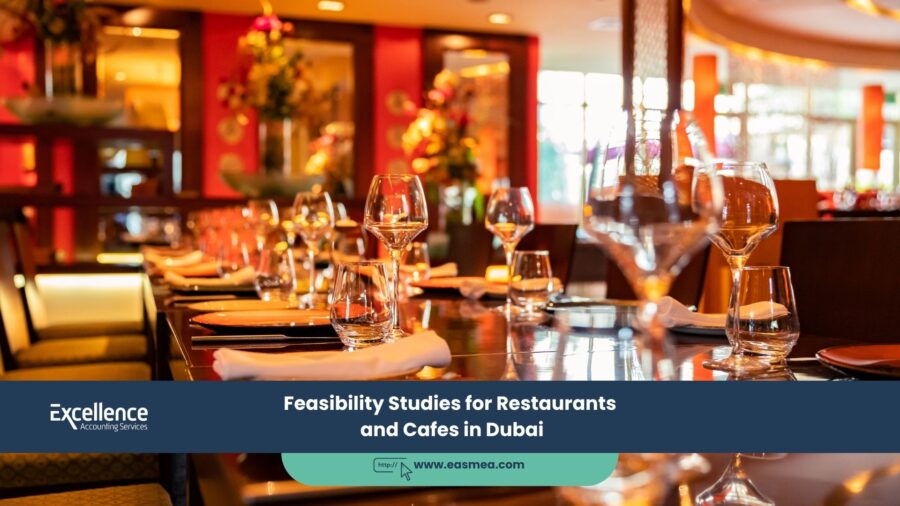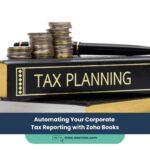Feasibility Studies for Restaurants and Cafes in Dubai
Dubai’s food and beverage (F&B) scene is one of the most vibrant and competitive in the world. From Michelin-starred fine dining to quirky homegrown cafes, the city offers a dazzling array of culinary experiences. For aspiring restaurateurs, this dynamic market presents a tantalizing opportunity. However, for every success story, there are countless ventures that quietly close their doors within the first year. The difference between success and failure often comes down to one crucial, preliminary step: a comprehensive feasibility study.
Launching a restaurant or cafe is not just about a great concept and a talented chef. It’s a high-risk, capital-intensive business where margins are tight and competition is fierce. In a market like Dubai, with its high rents, complex licensing, and discerning clientele, entering without a meticulously researched plan is a recipe for disaster. A feasibility study is your business plan’s foundation; it’s the rigorous, objective analysis that tests every aspect of your concept against the realities of the market *before* you sign a lease or invest a single dirham in kitchen equipment.
This guide will walk you through the essential components of a feasibility study tailored specifically for Dubai’s F&B industry. We will explore how to analyze the market, plan your operations, forecast your financials, and navigate the legal landscape to give your dream restaurant the best possible chance of not just surviving, but thriving.
Key Takeaways
- Passion is Not a Plan: A great concept needs to be backed by data. A feasibility study provides this data-driven foundation.
- Location is Everything: Market feasibility for an F&B outlet in Dubai is dominated by location analysis—footfall, visibility, accessibility, and neighborhood demographics are key.
- Financials are Ruthless: A detailed financial model is the core of the study, covering high fit-out costs, rent, staff salaries, and food costs to determine your break-even point.
- Operational Plan is Crucial: From kitchen layout and supplier sourcing to staffing and technology (POS, delivery aggregators), the technical feasibility ensures you can actually deliver your concept.
- Licensing is Non-Negotiable: Understanding the specific requirements from the Dubai Economic Department (DED) and Dubai Municipality is a critical part of the legal feasibility.
Why Dubai’s F&B Scene Demands a Feasibility Study
While a feasibility study is important for any business, it’s especially critical for restaurants in Dubai due to several market-specific factors:
- Extreme Competition: The market is saturated with both international chains and local concepts, all vying for the same customer base. Your concept needs a strong, validated Unique Selling Proposition (USP) to stand out.
- High Operating Costs: Prime location rents in Dubai are among the highest in the world. Combined with staff salaries and the cost of quality ingredients, the financial break-even point is often very high.
- Diverse and Demanding Customers: You need to understand the specific tastes and spending habits of a diverse population of residents and tourists. What works in Jumeirah might fail in Deira.
- Strict Regulations: The process of getting a trade license, food permits from Dubai Municipality, and other necessary approvals is complex and must be factored into your timeline and budget.
In Dubai’s F&B market, a feasibility study isn’t just a planning tool; it’s a survival tool. It helps you avoid the most common and costly mistakes that cause new restaurants to fail.
The 4 Pillars of a Restaurant Feasibility Study in Dubai
A comprehensive study for an F&B venture is built on four interconnected pillars of analysis.
1. Market Feasibility: Location, Concept, and Competition
This is the most critical pillar for a restaurant. It answers the question: “Is there a paying audience for this concept in this specific location?”
- Location Analysis: This is paramount. You must analyze footfall patterns, visibility, parking availability, accessibility, and the demographic profile of the surrounding residential and commercial areas.
- Concept Validation: Does your menu, price point, and ambiance align with the expectations of the target audience in your chosen location? A high-end concept may not work in a budget-conscious neighborhood.
- Target Audience Analysis: Define your ideal customer. Are you targeting tourists, local families, or young professionals? What is their average spend?
- Competitive Analysis: Map out every other F&B outlet in a 1-2 km radius. Analyze their concept, pricing, quality, and customer reviews to identify a gap in the market that you can fill.
2. Technical & Operational Feasibility: The Kitchen and Beyond
This pillar assesses the practicalities of running your restaurant day-to-day.
- Kitchen and Outlet Design: Does the proposed space allow for an efficient kitchen workflow? Is there enough space for storage, staff facilities, and a comfortable dining area?
- Sourcing and Supply Chain: Identify and vet potential suppliers for all your ingredients, from fresh produce to specialized items. Can you get consistent quality and pricing?
- Staffing Plan: Determine the number of chefs, kitchen staff, and front-of-house staff you need. Assess the availability and salary expectations for this talent in the Dubai market. This is a key part of your HR planning.
- Technology: Select your Point of Sale (POS) system, kitchen order ticket (KOT) system, and decide on your strategy for delivery aggregators (e.g., Talabat, Deliveroo).
3. Financial Feasibility: The Numbers Must Work
This is where the idea is tested against financial reality. A detailed financial model is created to project the restaurant’s performance.
- Startup Costs: A detailed budget for all one-time expenses, including license fees, fit-out and decoration, kitchen equipment, furniture, and rental deposits.
- Operating Costs: Monthly projections for rent, staff salaries, DEWA, marketing, and, most importantly, Cost of Goods Sold (COGS) or “food cost.”
- Revenue Projections: Forecast your sales based on the number of seats (covers), estimated table turnover rates, and average spend per customer (average check).
- Break-Even Analysis: Calculate the exact amount of sales you need to achieve each month to cover all your costs. This is your primary financial target.
4. Legal & Licensing Feasibility
This ensures your plan is compliant with all local regulations.
- Licensing Requirements: Understand the full process for obtaining a trade license from the Dubai Economic Department (DED) and all necessary food and safety permits from the Dubai Municipality.
- Alcohol Licensing: If you plan to serve alcohol, you must research the separate and complex process of obtaining an alcohol license.
- Staff Visas and Labor Law: Factor in the costs and procedures for sponsoring employee visas and ensuring compliance with UAE Labour Law.
From Concept to Reality with an EAS Feasibility Study
Launching a restaurant is a passion project, but it needs to be built on a profitable business case. At Excellence Accounting Services (EAS), we provide detailed, data-driven feasibility studies specifically for the F&B sector in Dubai.
Our Services Include:
- Hyper-Local Market Analysis: We provide detailed analysis of specific locations and neighborhoods to validate your concept against the local demographic.
- Robust Financial Modeling: Our core strength is building detailed financial projections that accurately forecast your startup costs, operating expenses, and potential profitability, including a clear break-even analysis.
- Investor-Ready Reports: We compile our findings into a professional report that you can use to secure a location, obtain financing, and guide your strategic decisions.
Frequently Asked Questions (FAQs)
While it varies by concept, a general benchmark for a successful restaurant in Dubai is a food cost (COGS) of between 28% and 35% of your food revenue. Controlling this is one of the most critical factors for profitability.
This varies massively based on location and fit-out, but a very rough estimate for a small, basic cafe could range from AED 300,000 to over AED 700,000. A feasibility study is what will give you a precise, reliable number for your specific concept.
It can be. The startup costs are significantly lower as you don’t need a prime location or a dining area. However, you are entirely reliant on delivery aggregators, who charge high commission fees (often 25-35% of the order value), which puts heavy pressure on your margins. A feasibility study can compare the financial viability of both models.
The process can be complex and typically takes several months. It involves multiple stages of approvals from the DED, Dubai Municipality, and other entities. This timeline must be factored into your feasibility study, as you will be paying rent during this setup period with no revenue coming in.
One of the biggest is the pre-opening expenses. This includes salaries for staff you need to hire and train before you open, marketing to build buzz, and rent for the 2-3 months of fit-out when you have no sales. A good feasibility study will budget for this working capital.
This is one of the hardest parts. It’s based on a formula: `(Number of Seats x Table Turnover Rate x Average Check Size x Days Open)`. The inputs for this formula (like turnover rate and check size) are derived from the market and competitor analysis done during the feasibility study.
You need a *clear* concept with a *well-defined* target audience. It doesn’t have to be something wildly unique that has never been done before. A classic concept (like a great pizzeria or neighborhood cafe) that is executed exceptionally well in the right location can be highly successful.
For a capital-intensive venture like a restaurant, it is highly recommended. An experienced consultant brings objectivity, access to market data, and financial modeling expertise. They can prevent your own passion and biases from clouding your judgment on the viability of the project.
The break-even point is the level of sales at which your total revenues equal your total costs, and your profit is zero. It’s the minimum you need to sell to survive. A key goal of a feasibility study is to calculate this point and assess if it is realistically achievable.
No. A positive feasibility study confirms that your business *can* be successful if it is executed well. The ultimate success still depends on your management, the quality of your food and service, your marketing, and your ability to adapt. However, it dramatically improves your chances by ensuring you start with a sound and viable plan.
Conclusion: Your Recipe for Success
Opening a restaurant or cafe in Dubai is the realization of a dream for many entrepreneurs. A feasibility study is the essential process that ensures this dream is built on a solid foundation of data, planning, and realistic expectations. It is the most important ingredient in your recipe for success.
By rigorously testing your concept against the realities of the Dubai market, you can identify challenges early, refine your strategy, and move forward with the confidence that your venture is not just a passion project, but a viable, profitable business.
Is Your Restaurant Concept Viable in Dubai?
Our F&B feasibility experts can provide the detailed analysis you need to secure funding and launch with confidence.




